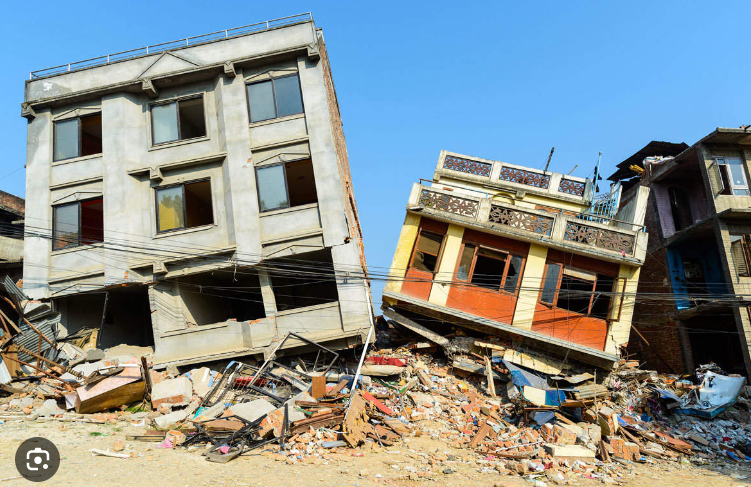Delhi, India’s bustling capital city, is a sprawling metropolis with a rich history and a vibrant culture. However, beneath its surface lies a potential disaster waiting to strike – the threat of a devastating earthquake. While Delhi may not be located in a region traditionally associated with high seismic activity, recent studies and historical data reveal that the city is far from immune to the dangers of earthquakes. In this blog, we’ll delve into Delhi’s earthquake vulnerability, assess the risks, and ask a crucial question: Are we prepared for this looming threat?
Earthquake Delhi
Delhi is situated in a seismically active region, lying within Zone IV of the seismic zoning map of India. This classification indicates a moderate-to-high seismic risk, meaning the city is susceptible to earthquakes with magnitudes ranging from moderate to strong. While Delhi may not experience frequent tremors, when they do occur, the impact can be catastrophic.
The Historical Perspective
To gauge the potential risk, it’s essential to examine historical earthquake events in the region. Earthquake Delhi has experienced several significant earthquakes in its history, including the devastating earthquake of 1956, which had a magnitude of 7.0 and caused widespread destruction. More recently, in 2001, an earthquake with a magnitude of 7.7 struck the neighboring state of Gujarat, causing damage even in Delhi, highlighting the city’s vulnerability.
Rapid Growth, Fragile Foundations
Earthquake Delhi rapid urbanization has led to the construction of numerous high-rise buildings and infrastructure. While this growth is a sign of progress, it also means that many structures may not meet the necessary seismic safety standards. The construction of buildings without proper earthquake-resistant features significantly increases the risk to residents in the event of a tremor.
Crucial Lifelines at Risk
Delhi’s critical infrastructure, including transportation networks, water supply systems, and power grids, could be severely affected by a major earthquake. Damaged infrastructure can disrupt emergency response efforts, exacerbating the impact of the disaster. Ensuring the resilience of these systems is a vital aspect of earthquake preparedness.
The Need for a Plan
Preparing for earthquakes involves not only retrofitting existing structures but also having a well-structured emergency response plan in place. Earthquake Delhi, like many other Indian cities, faces challenges in this regard. While there have been efforts to improve preparedness, there is a need for increased awareness and investment in training, equipment, and resources to handle earthquake-related emergencies effectively.
Building Codes and Retrofitting
One crucial aspect of earthquake preparedness is ensuring that buildings meet seismic safety standards. Retrofitting older structures to make them earthquake-resistant is an ongoing process in Earthquake Delhi. However, enforcing building codes and ensuring compliance remains a challenge, and many older buildings still pose a significant risk to occupants.
Public Awareness and Education
Public awareness plays a pivotal role in earthquake preparedness. Citizens must be educated about earthquake risks, the appropriate actions to take during a tremor, and how to assemble emergency kits. Community drills and awareness campaigns can help disseminate this crucial information.
Role of Government and NGOs
Government bodies and non-governmental organizations (NGOs) have a critical role to play in earthquake preparedness. They can coordinate efforts to improve building standards, invest in disaster response infrastructure, and conduct awareness campaigns. Collaborative efforts between these entities are essential to mitigating the impact of a potential earthquake.
Conclusion: Are We Prepared?
Delhi’s earthquake vulnerability is a pressing concern that cannot be ignored. While progress has been made in terms of retrofitting buildings and raising awareness, there is still much work to be done. The looming threat of a major earthquake in Delhi should serve as a wake-up call to all stakeholders – government authorities, builders, residents, and civil society. It’s not a question of if, but when, the next earthquake will strike. The level of preparedness we achieve will determine the extent of the damage and loss of life. It’s high time we come together to ensure that Delhi is truly prepared for the seismic challenges that lie ahead.







